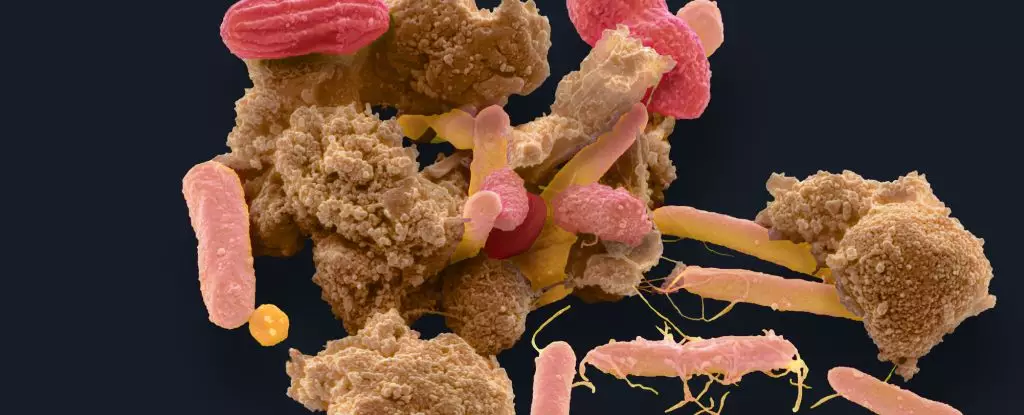In the intricate ecosystem of the human body, the gut teems with a diverse community of bacteria that play an indispensable role in maintaining our health. This harmonious state, known as eubiosis, fosters not only effective digestion but also supports our immune system and metabolic functions. However, the tranquility of this microbial landscape can be easily disturbed. Factors such as the overuse of antibiotics, poor dietary choices, and various illnesses can tip the balance toward dysbiosis, unleashing a cascade of health issues. From chronic digestive disorders to severe conditions like Crohn’s disease and even psychological ailments, the repercussions of this microbial imbalance are alarming.
As a society, we are waking up to the fundamental link between gut health and overall wellness, which brings us to the cutting-edge yet controversial practice of fecal microbiota transplantation (FMT). Often dubbed “crapsules” or “poo pills” with a touch of humor, these procedures involve transferring stool from a healthy donor into a recipient with the aim of restoring gut microbiota. While the promise of FMT is compelling, it seems we might be on the precipice of a critical reckoning regarding its efficacy and safety.
The Mismatch Paradox: Unraveling the Science
A recent study published in the influential journal Cell has illuminated a critical issue: the phenomenon of “mismatch.” Just as organ transplants can fail when donor organs don’t fit well with the recipient’s body, gut transplants can likewise falter if the transplanted microbes aren’t well-suited to the recipient’s gut environment. This revelation raises eyebrows and questions about our modern reliance on fecal transplants as a one-size-fits-all solution to gastrointestinal woes.
Experiments involving mice have demonstrated how faecal transplants can inadvertently disrupt microbial communities. Researchers observed that when beneficial microbes were introduced to the wrong regions of the gut, they caused frustrating complications, skewing not just digestive health but also metabolic and immune responses. The long-term implications of such mismatches are still largely unknown, which disconcertingly places the medical community in a precarious position. It’s crucial to ask: can we afford to embrace treatments with such inherent risks?
Beyond Feces: Navigating Towards Safer Solutions
In the wake of these unsettling findings, the discussion inevitably turns to alternatives. Enter the so-called “omni microbial approach,” which broadens the scope of transplantation to encompass microbes from all sections of the intestine, not just the colon. This innovative method promises to enhance microbial diversity and restore balance in a way that standard fecal transplants struggle to achieve. Is this the future of gut health, or merely another complicated layer in an already convoluted medical landscape?
The idea of “terraforming” the gut is even more intriguing. With this approach, practitioners can cultivate specific microbial communities tailored to each segment of the intestinal tract. It’s a revolutionary step, akin to designing a custom-fit ecosystem for optimal health, which might not only reduce the risks associated with mismatched fecal transplants but also revolutionize our understanding of gut microbiomes.
As the debate continues to rage, it’s evident that we must remain vigilant. The notion of seeking gut health through fecal transplantation needs to be scrutinized and approached with caution. The science is still evolving, and until there’s a comprehensive understanding of how microbial therapies can be implemented without significant risks, patients deserve transparency and informed consent.
A Cautious Optimism for Gut Treatments
The landscape of gut health treatments is at a critical juncture. While fecal microbiota transplantation may have ignited excitement in the medical community and among patients, the revelations surrounding mismatches compel us to think critically about our options. Alternative methods like the omni microbial approach and terraforming offer tantalizing promises, but we must tread carefully. A rush toward quick fixes may lead us deeper into uncharted territories, where the consequences of miscalculations could be far more severe.
This is not merely a tale of transplants and microbes; it is a reflection of our approach to health—a reminder that we must prioritize not just advancements, but the long-term welfare of individuals navigating the complex labyrinth of gut microbiota. The challenge ahead is not just scientific but also ethical; we owe it to ourselves to question, critique, and innovate responsibly as we seek to reclaim our gut health from the chaos of modern life.


Leave a Reply